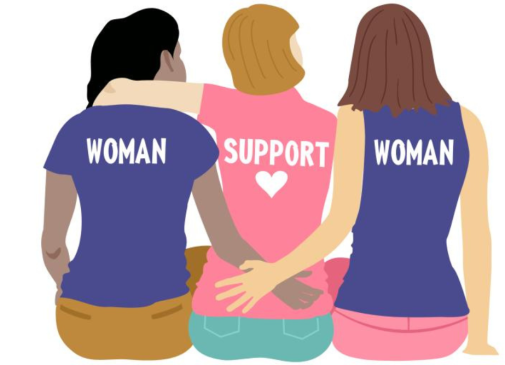
First off, how much blood is considered to be heavier than normal? If you need to change your tampon or pad less than two hours or you pass blood clots the size of a quarter or larger, that is heavy bleeding. If you are experiencing this, it’s important to visit the doctor. Once there, they will ask questions such as:
- How often are you experiencing a heavy period at night?
- How is it affecting your everyday life?
- Are you experiencing any other symptoms like pelvic pain at night?
- Is your heavy period waking you up in the middle of the night?
- How long has this issue been going on?
These questions can help the doctor understand if your heavy period at night could be caused by hormonal imbalance, bleeding issue, genetic condition, or an underlying uterine disease like uterine fibroids.
Why Do Uterine Fibroids Cause Heavy Bleeding?
Due to the fact that uterine fibroid tumors are connected to your uterine lining, the pressure of the fibroid(s) against the uterine wall can cause the endometrial tissue to bleed more than it usually would. When you get your period, the uterine lining sheds and the uterus contracts the bleeding vessels of the uterus. These contractions, worse than a regular period, cause immense pelvic pain that is often associated with fibroids. It is believed that fibroids don’t allow the uterus to contract properly, so it’s unable to effectively stop menstrual bleeding.
Another issue is fibroids produce growth factors (proteins) that stimulate the blood vessels of the uterus and cause more blood in the uterine cavity, leading to heavy periods at night. If you’re dealing with a heavy period while sleeping, your doctor should rule out uterine fibroids before anything else through a simple ultrasound exam.
Best Way to Sleep on a Heavy Period
Whether you have gotten a diagnosis or are waiting to visit the doctor, it’s important to know what the best way to sleep on a heavy period so you can get the necessary sleep you need to function effectively. Here are a few suggestions to try to deal with heavy period at night:
- Double up on pads: To combat a heavy period while sleeping, buy super absorbent pads and double up. This can help in case you soak through the first pad.
- Wear period underwear: There are quite a few different brands of period underwear on the market that is designed to combat heavy periods at night. Period underwear has various absorption levels, so make sure to get ones that fit snuggly and can hold the most volume.
- Try menstrual cups: This is by far one of the most popular choices for women who want to know how to sleep on a heavy period. Menstrual cups hold a large amount of period blood and can safely stay within the vagina for close to 12 hours. It’s safer than tampons and comfier than pads. Consult your doctor before choosing the right menstrual cup for your specific needs.
- Invest in two, waterproof mattress pads: If you’re constantly worried about ruining your mattress with your heavy periods at night, invest in two, waterproof mattress pads that can easily be changed in the middle of the night. This will protect your mattress and can be washed the next day.
- Put on two sets of sheets: Depending on your flow, heavy periods while sleeping can be an extreme inconvenience, especially if you’re waking up in the middle of the night. Before going to bed, put on two sets of sheets so you can easily take off one set and go back to sleep.
- Get to the root of the issue: It’s important to get to the root of the issue in order to learn how to stop a heavy period at night. Getting a proper diagnosis (remember you can get a second opinion) to determine if your heavy periods at night or caused by a hormonal, genetic, or uterine condition.
Best Period Pads for Sleeping and Other Helpful Products
In order to choose the best period pads for sleeping, it’s important to understand what you’re looking for when you visit the drugstore.
- Make sure they are long (11-13 inches in length and 2.5-3 inches wide) works well in keeping the blood from not ruining your sheets or clothing.
- Check to ensure they are super absorbent and are made with cotton. See if the box tells you how many hours they are averaged to withstand (you want to find pads that are at least 8 to 10 hours).
- Determine if you’d rather use reusable pads or period underwear. This depends on whether or not you want to wash or just throw away at the end of the night.
- See how bulky they are. They should fit comfortably in your underwear. Even if they hold a lot of volume, you’re less likely to sleep soundly if they are uncomfortable.
Dealing with Pelvic Pain at Night
You’re sound asleep until you’re suddenly awoken by the pulsating pain in your abdomen. You reach for the Ibruprofen and take the recommended dosage, waiting for it to kick in. Hours go by and you’re still crumpled into a ball writing in pain. Pelvic pain at night can be exhausting, hours of sleep lost to waiting for the symptoms to subside.
If you’re experiencing pelvic pain at night as well as heavy bleeding while sleeping, you may be dealing with uterine fibroids. You may be wondering, “why is pelvic pain waking me at night?” and wanting to find a solution as quick as possible. If you can’t get to the doctor right away, here are a few tips you can try to reduce the amount of pelvic pain at night:
- Buy a heating pads to place on your abdomen or lower back.
- Take Ibuprofen before you go to sleep to prevent pelvic pain at night.
- Distract yourself with soft music, reading a good book, or listening to a podcast.
- Keep hydrated throughout the day to ease pelvic pain at night.
- Change positions and adding pillows to your legs or back can help prevent excessive pain.
- Draw a warm bath to ease back and pelvic pain at night.
- Wear loose clothing to bed, especially around the abdomen/belly, to be as comfortable as possible.
Although these tips can help ease pelvic pain at night, they are not long-term solutions to chronic heavy bleeding or pelvic pain at night. These issues may indicate an underlying issue, which should be addressed as early as possible.
Getting Treatment for a Heavy Period While Sleeping
We understand that heavy bleeding while sleeping and pelvic pain at night can be frustrating. That’s why the Fibroid Fighters Foundation is committed to raising awareness of uterine fibroids as well as other women’s health conditions. We provide educational materials for women who may be living with a painful, heavy period. If you’re struggling with these symptoms, we can help you find a treatment solution that meets your individual needs.
Explore our website or give us a call at 855.455.5262 to learn more about how we can help you in your journey.
Share Your Story
If you have uterine fibroids or have undergone fibroid treatment in the past, we want to hear from you. As fibroid fighters, one of our main goals is to raise awareness about uterine fibroids and the alternative treatment options that are available.
Their are thousands of women who reluctantly pursue a hysterectomy because they are desperate for relief. We believe that every women has the right to be educated about all of the options that are available to her before she has to lose her uterus.







